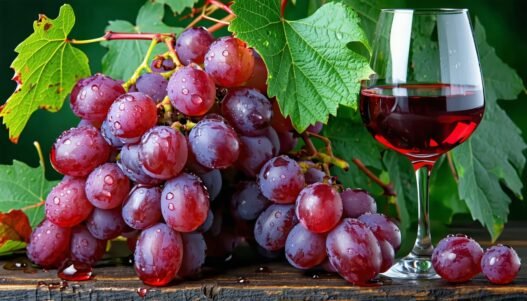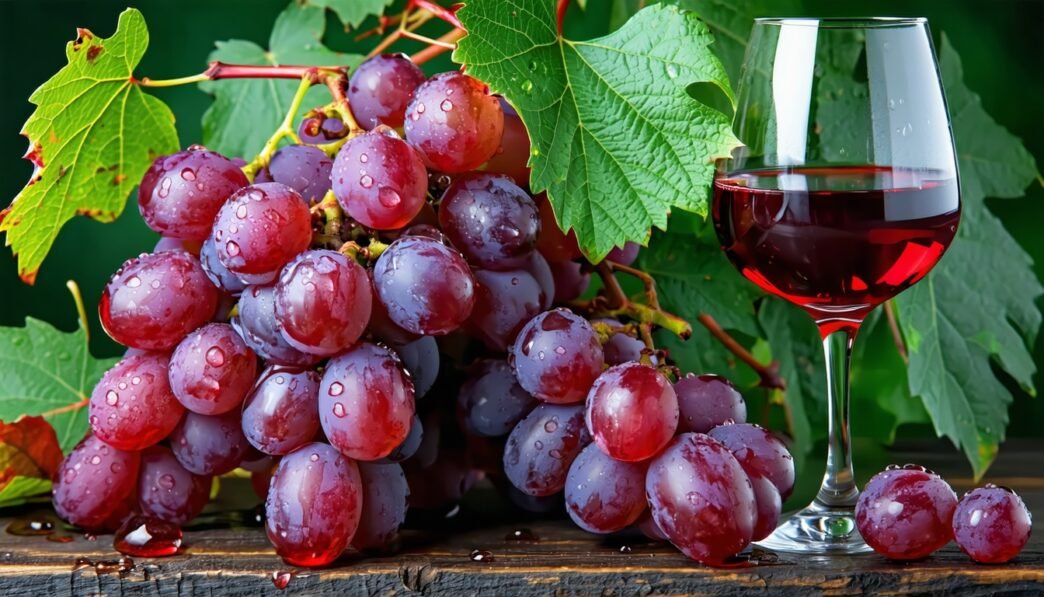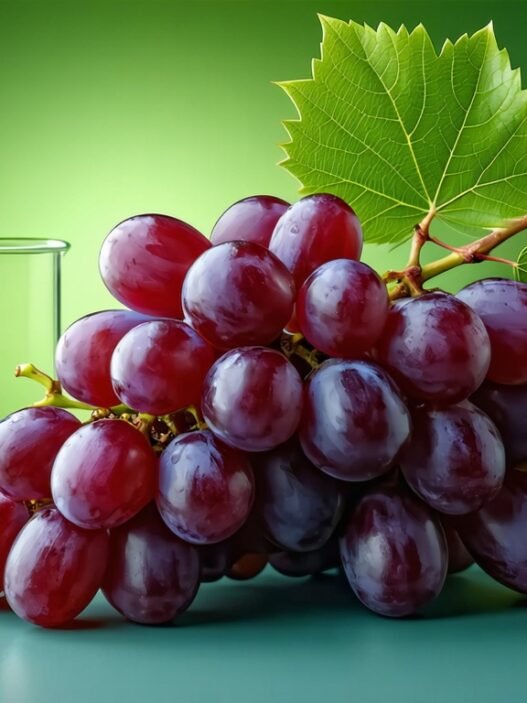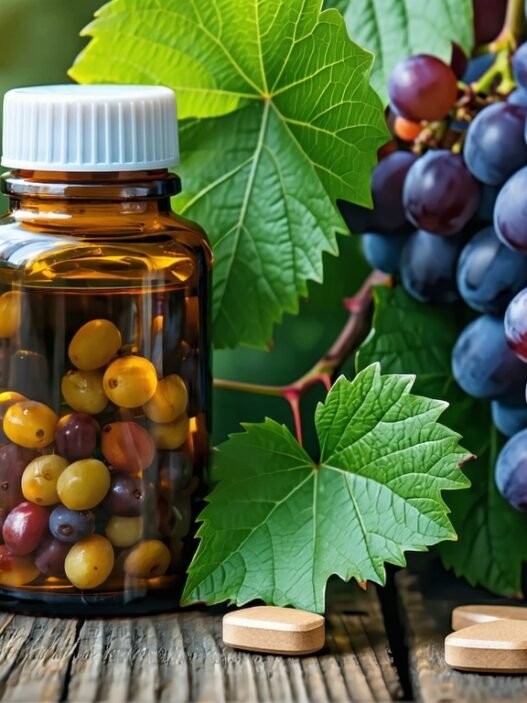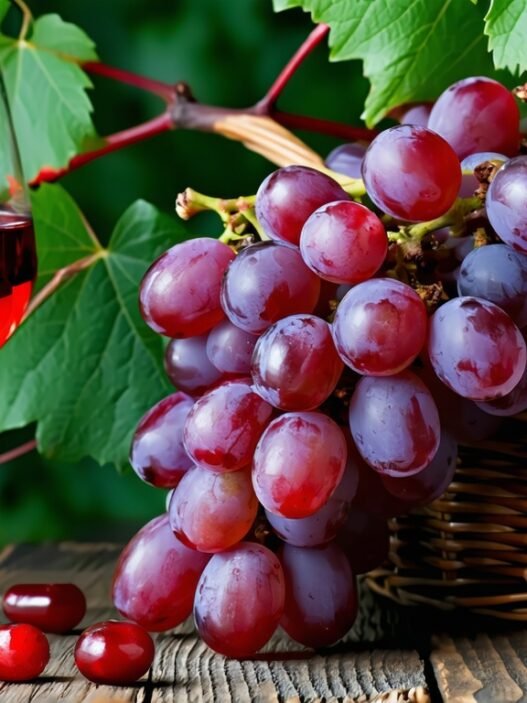Exploring Resveratrol
What is Resveratrol?
Resveratrol is a natural compound classified as a polyphenol, primarily found in various plants. This compound plays a crucial role in protecting plants from environmental stressors, such as ultraviolet radiation and pathogens. Within the context of human health, resveratrol has gained attention for its potential anti-aging and health-promoting properties. Research suggests that these benefits may arise from its antioxidant capabilities, which help neutralize harmful free radicals in the body.
Resveratrol is often associated with the health benefits observed in moderate red wine consumption, leading to popular interest in its potential as a supplement. The exploration of resveratrol benefits continues to grow as more studies emerge.
Natural Sources of Resveratrol
Resveratrol is present in various foods and beverages. Some natural sources include:
| Food Source | Resveratrol Content (mg per 100g) |
|---|---|
| Red grapes | 0.3 – 1.5 |
| Red wine | 0.2 – 5.8 |
| Peanuts | 0.01 – 0.06 |
| Dark chocolate (70% cacao) | 0.6 – 1.0 |
| Blueberries | <0.01 |
| Seaweed | 0.03 – 0.5 |
Incorporating foods rich in resveratrol into a balanced diet can be an effective way to harness its potential health advantages. For more details on dietary options rich in this compound, explore our article on resveratrol foods.
While it’s beneficial to consume these natural sources, some may consider resveratrol supplements to enhance their intake. It is advisable to consult healthcare professionals when considering supplementation, particularly regarding proper resveratrol dosage and any potential resveratrol side effects.
Understanding these sources and how to include them in a daily regimen is essential for those looking to leverage resveratrol’s potential health benefits.
Resveratrol’s Anti-Aging Benefits
Resveratrol is gaining popularity as a natural compound that may offer significant anti-aging properties. This section explores its antioxidant effects, potential benefits for longevity, and influence on cellular aging.
Antioxidant Properties
Resveratrol is a potent antioxidant, known for its ability to neutralize free radicals. These unstable molecules can cause oxidative damage to cells, contributing to aging and various diseases. By combating oxidative stress, resveratrol helps protect cells from damage.
Research has shown that resveratrol may enhance the body’s natural antioxidant defenses, leading to improved cellular health. Below is a comparison of the antioxidant capacities of common antioxidants, including resveratrol.
| Antioxidant | ORAC Value (μmol TE/100g) |
|---|---|
| Resveratrol | 2,200 |
| Vitamin C | 1,800 |
| Vitamin E | 1,000 |
| Quercetin | 4,000 |
*ORAC (Oxygen Radical Absorbance Capacity) values reflect the antioxidant capacity of each compound.
Potential Benefits for Longevity
Studies suggest that resveratrol may have a positive effect on longevity. It is believed to activate certain genes associated with aging, including the SIRT1 gene, which is involved in regulating inflammation, metabolism, and cellular repair. This activation can potentially lead to increased lifespan and a reduction in age-related diseases.
Research on animal models indicates that a diet rich in resveratrol may mimic the benefits of caloric restriction, a method known to extend lifespan. Ongoing studies continue to explore its impact on human longevity. For more details on this topic, refer to our article on resveratrol and longevity.
Effects on Cellular Aging
Resveratrol may influence the aging process at the cellular level. It appears to slow down the decline in cellular function that comes with age. Resveratrol promotes autophagy, a process that helps remove damaged cells and cellular debris, contributing to healthier cellular function.
Additionally, it may reduce inflammation, a key factor in cellular aging. Lowering inflammation can improve overall health and potentially mitigate age-related diseases. For insights into how resveratrol affects overall health, visit our article on resveratrol health benefits.
By understanding the anti-aging benefits of resveratrol, individuals can make informed decisions about incorporating it into their lifestyle. These insights highlight resveratrol’s potential as a valuable ally in the journey toward aging gracefully.
Resveratrol and Health
Resveratrol is gaining attention not only for its anti-aging properties but also for its potential to promote overall health. Research suggests that resveratrol may have significant effects on cardiovascular health, brain health, and metabolic processes.
Cardiovascular Health
Numerous studies have indicated that resveratrol may positively influence heart health. It exhibits antioxidant properties, which can help reduce oxidative stress and protect blood vessels from damage. Research shows that resveratrol may also aid in lowering cholesterol levels, improving circulation, and enhancing overall cardiovascular function.
| Health Aspect | Potential Benefits |
|---|---|
| Cholesterol Levels | May lower LDL cholesterol |
| Blood Pressure | Can promote vasodilation, reducing blood pressure |
| Circulatory Health | May enhance blood flow and prevent arterial plaque formation |
For more detailed information on resveratrol’s effects on heart health, visit our article on resveratrol for heart health.
Brain Health
The connection between resveratrol and brain health is an area of growing interest. This compound may support cognitive function and reduce the risk of neurodegenerative diseases. Resveratrol’s anti-inflammatory properties can help protect brain cells and may improve memory and overall cognitive performance.
| Cognitive Aspects | Potential Benefits |
|---|---|
| Memory Enhancement | May improve memory retention |
| Neuroprotection | Can help protect against Alzheimer’s disease |
| Mood Improvement | Potential to alleviate symptoms of depression |
Learn more about the effects of resveratrol on cognitive health in our article on resveratrol for brain health.
Metabolic Health
Resveratrol also shows promise in promoting metabolic health. It has been linked to improved insulin sensitivity, which can be beneficial for managing blood sugar levels. Additionally, resveratrol may assist in weight management by boosting metabolism and encouraging fat breakdown.
| Metabolic Aspect | Potential Benefits |
|---|---|
| Blood Sugar Control | May enhance insulin sensitivity |
| Weight Management | Could support fat loss and prevent weight gain |
| Metabolic Rate | May increase energy expenditure |
For further insights on resveratrol’s benefits in weight management, check out our article on resveratrol for weight loss.
In summary, the health benefits of resveratrol extend beyond anti-aging effects, encompassing various aspects of cardiovascular, brain, and metabolic health. Individuals interested in incorporating resveratrol into their routine can explore various dietary sources and forms here.
Resveratrol Supplementation
Supplementing with resveratrol can be an effective way to harness its health benefits. Understanding proper dosage and how to choose quality supplements is crucial for maximizing its potential effects on health and aging.
Dosage and Safety Considerations
When considering resveratrol supplementation, it is important to determine the appropriate dosage. Research studies indicate that effective doses typically range from 150 mg to 500 mg per day. However, individual needs may vary based on health status or specific goals.
| Study | Dose of Resveratrol | Observed Effects |
|---|---|---|
| Study A | 150 mg | Improved cardiovascular health |
| Study B | 250 mg | Enhanced cognitive function |
| Study C | 500 mg | Decreased inflammation |
Resveratrol is generally considered safe when taken in recommended doses. However, some individuals may experience side effects such as gastrointestinal discomfort or headaches. For an extensive overview of potential side effects, refer to our article on resveratrol side effects.
Consulting with a healthcare provider before starting any supplementation is advisable. This ensures that individuals consider any underlying health conditions or medications that may interact with resveratrol.
Choosing Quality Supplements
Not all resveratrol supplements are created equal. When selecting a resveratrol product, several factors should be taken into account to ensure quality:
- Source of Resveratrol: Choose supplements derived from natural sources, such as grapes or berries, for the best absorption.
- Purity and Concentration: Look for products that specify the concentration of resveratrol. Higher purity typically means better efficacy.
- Third-Party Testing: Opt for supplements that have undergone third-party testing for quality and safety. This adds a layer of trust regarding the product’s integrity.
| Factor | What to Look For |
|---|---|
| Source | Natural plant-based sources |
| Concentration | High purity percentage |
| Testing | Third-party verified |
For individuals looking for dietary sources, incorporating foods rich in resveratrol can be beneficial. Explore various options in our article on resveratrol foods.
Ensuring the right dosage and choosing quality supplements can significantly enhance the potential resveratrol benefits for health and anti-aging. Always approach supplementation thoughtfully and informed.
Incorporating Resveratrol Into Your Lifestyle
Understanding how to integrate resveratrol into daily life is essential for longevity and anti-aging enthusiasts. By focusing on dietary sources, incorporating it effectively, and consulting with healthcare providers, individuals can maximize the potential benefits of resveratrol.
Dietary Sources of Resveratrol
Resveratrol can be found in various foods. Eating a diet rich in resveratrol not only contributes to overall health but also supports anti-aging efforts. Some notable sources include:
| Food Source | Resveratrol Content (mg per 100g) |
|---|---|
| Red Wine | 0.2 – 5.0 |
| Grapes (Red) | 0.1 – 1.8 |
| Blueberries | 0.2 – 1.0 |
| Dark Chocolate | 0.3 – 3.0 |
| Peanuts | 0.01 – 0.3 |
| Mulberries | 0.2 – 1.0 |
For more on food options, refer to our article on resveratrol foods.
Integrating Resveratrol for Anti-Aging Benefits
Incorporating resveratrol into a wellness routine can enhance anti-aging effects. This can be achieved through several methods:
-
Consume Resveratrol-Rich Foods: Include grapes, dark chocolate, and berries in your daily meals to enhance antioxidant intake.
-
Consider Resveratrol Supplements: Supplements may provide a concentrated dose of resveratrol. For guidance on the right supplementation approach, explore our article on resveratrol supplements.
-
Monitor Overall Diet: Maintaining a balanced diet rich in vitamins, minerals, and antioxidants supports the effectiveness of resveratrol, contributing to overall health and vitality.
-
Implement Exercise: Physical activity complements the benefits of resveratrol by enhancing circulation and metabolic health. Engage in regular exercise for optimal results.
-
Stay Informed about New Research: Staying updated on studies related to resveratrol health benefits and its applications can aid in making informed decisions.
Consulting with a Healthcare Provider
Before making significant dietary changes or starting resveratrol supplementation, consulting with a healthcare provider is crucial. They can provide personalized advice tailored to individual health conditions and needs. Topics to discuss may include:
- Ideal dietary sources and supplementation options.
- Potential interactions with medications.
- Specific health benefits, such as resveratrol for diabetes or resveratrol for heart health.
By incorporating resveratrol into daily life thoughtfully and under professional guidance, individuals can harness its benefits effectively, contributing positively to their aging journey.










